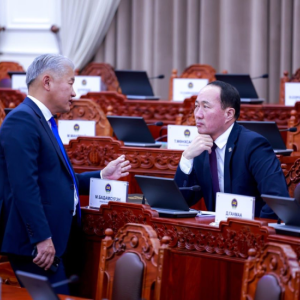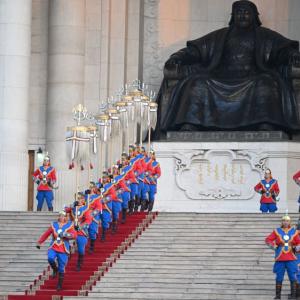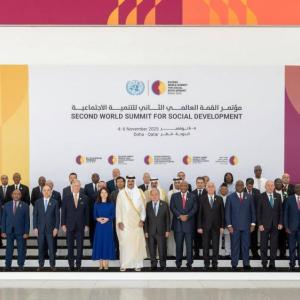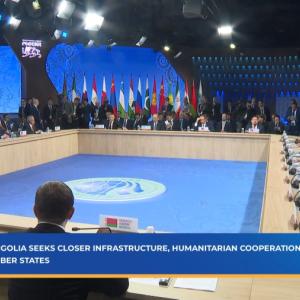Central bank forecasts economic growth to be 4-5 percent in 2023
Economy
Ulaanbaatar /MONTSAME/. Mongolia's economy is affected by unfavorable external conditions, but economic growth is expected to reach 3 percent at the end of this year and 4-5 percent next year, highlighted the Governor of the Bank of Mongolia, B. Lkhagvasuren, in his speech during the discussion of the main direction of the government's monetary policy in 2023.
He said, "Inflation is at 13.2 percent and we are pursuing a policy to stabilize it at a single-digit number in 2023. Economic recovery is observed in sectors other than mining, construction, and transport logistics, but since the beginning of the year, the inflow of foreign currency has slowed down, the balance of payments has deteriorated, and exports cannot be carried out as much as desired. He pointed out that there is a difference of USD 2.3-2.5 billion between the statistics of the Customs General Administration and the flow of foreign exchange coming through the bank, which is due to the fact that the foreign currency income comes in the form of goods.
In addition, it is necessary to pay attention to the macro-economic policy in the coming year and to improve the level of industrial development in the medium and long term. Specifically, our country exports 7,000 of the 10,000 tons of combed cashmere per year, and 3,000 tons are made into products. Therefore, we are discussing the implementation of a project in cooperation with an international organization on processing cashmere to an advanced level.
Mining products account for 93 percent of foreign trade exports, and other industrial sectors account for 6 percent. As a result of policies dominated by the mining sector, the economy will become dependent on one sector. Therefore, it was discussed during the discussion that it is desirable to increase the export of other sectors and implement projects and programs based on foreign resources as much as possible.

External
factors and transport costs account for 50-60 percent of inflation. In
addition, B. Bayardavaa, the Director of the Monetary Policy Department of the
Bank of Mongolia, noted that the decision to increase the price of energy by
enterprises and the increase in the price of flour creates conditions for
inflation to increase by 2 percent. "Since the price of seasonal goods has
the greatest impact on inflation, it is necessary to implement a stable supply
policy. If public spending is expanded, foreign prices, transportation, oil
prices, and nominal wages increase, and the amount of loans does not increase,
inflation will likely reach 17-18 percent instead of 8 percent”.
 Ulaanbaatar
Ulaanbaatar














































































